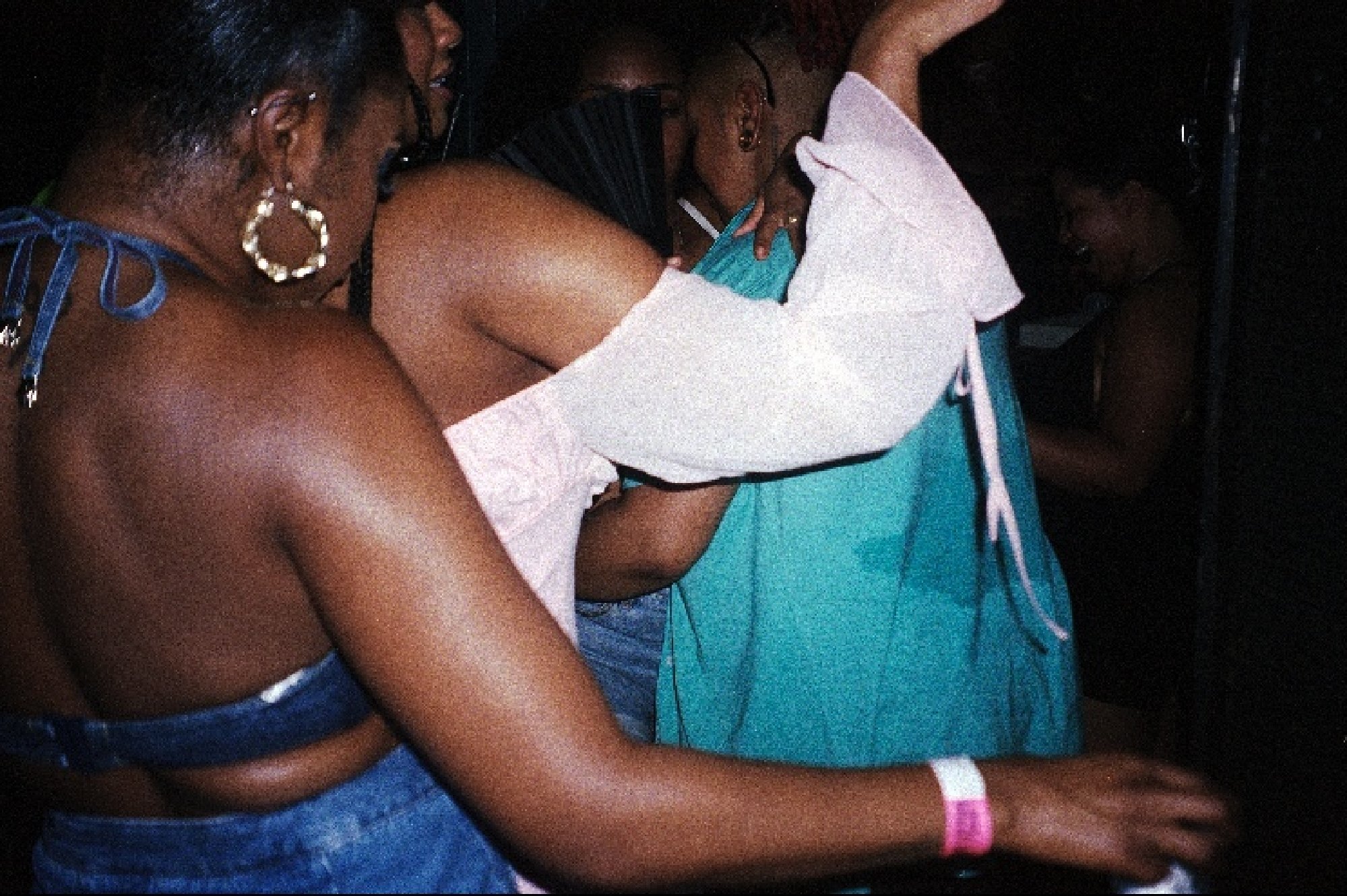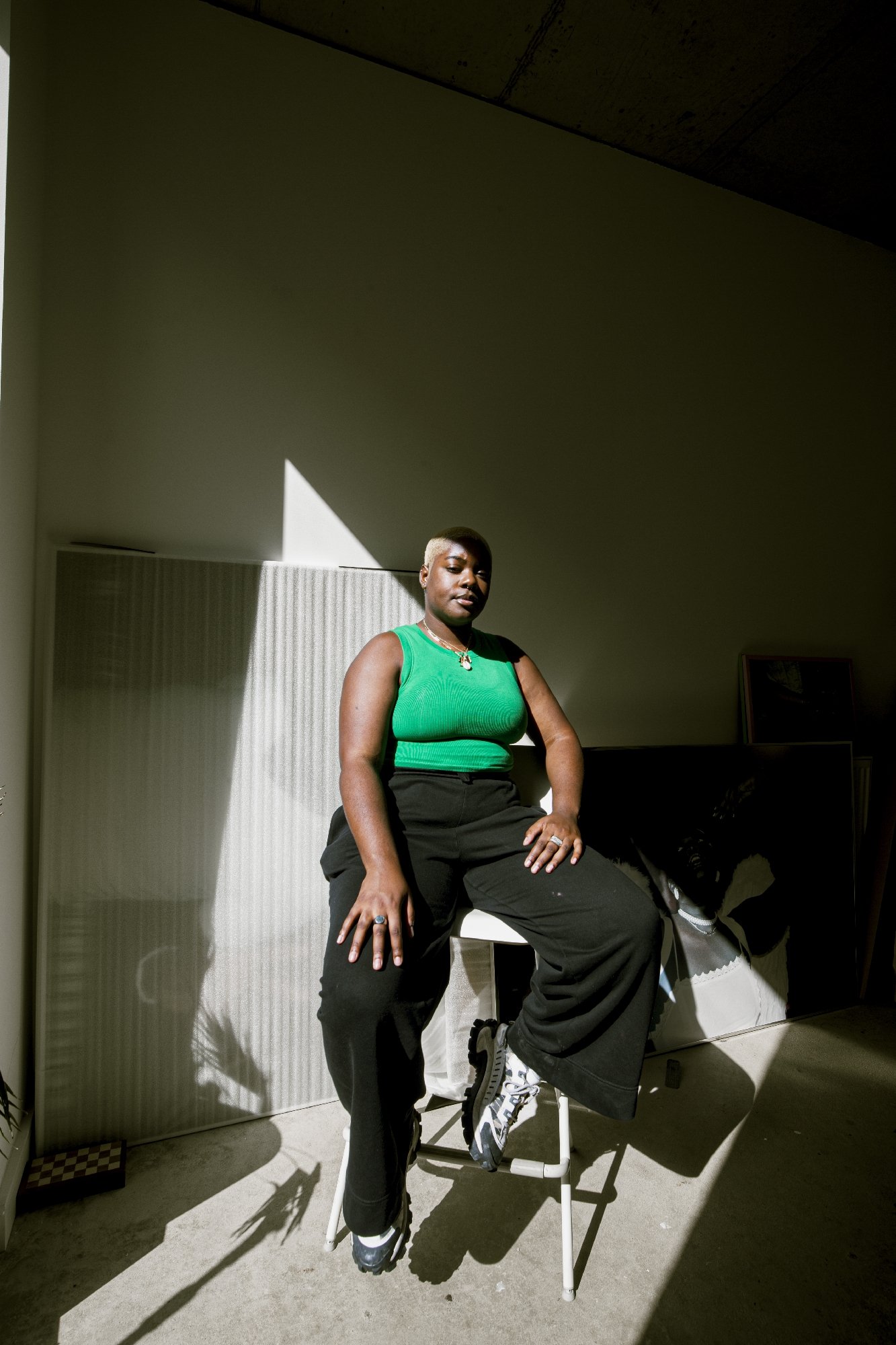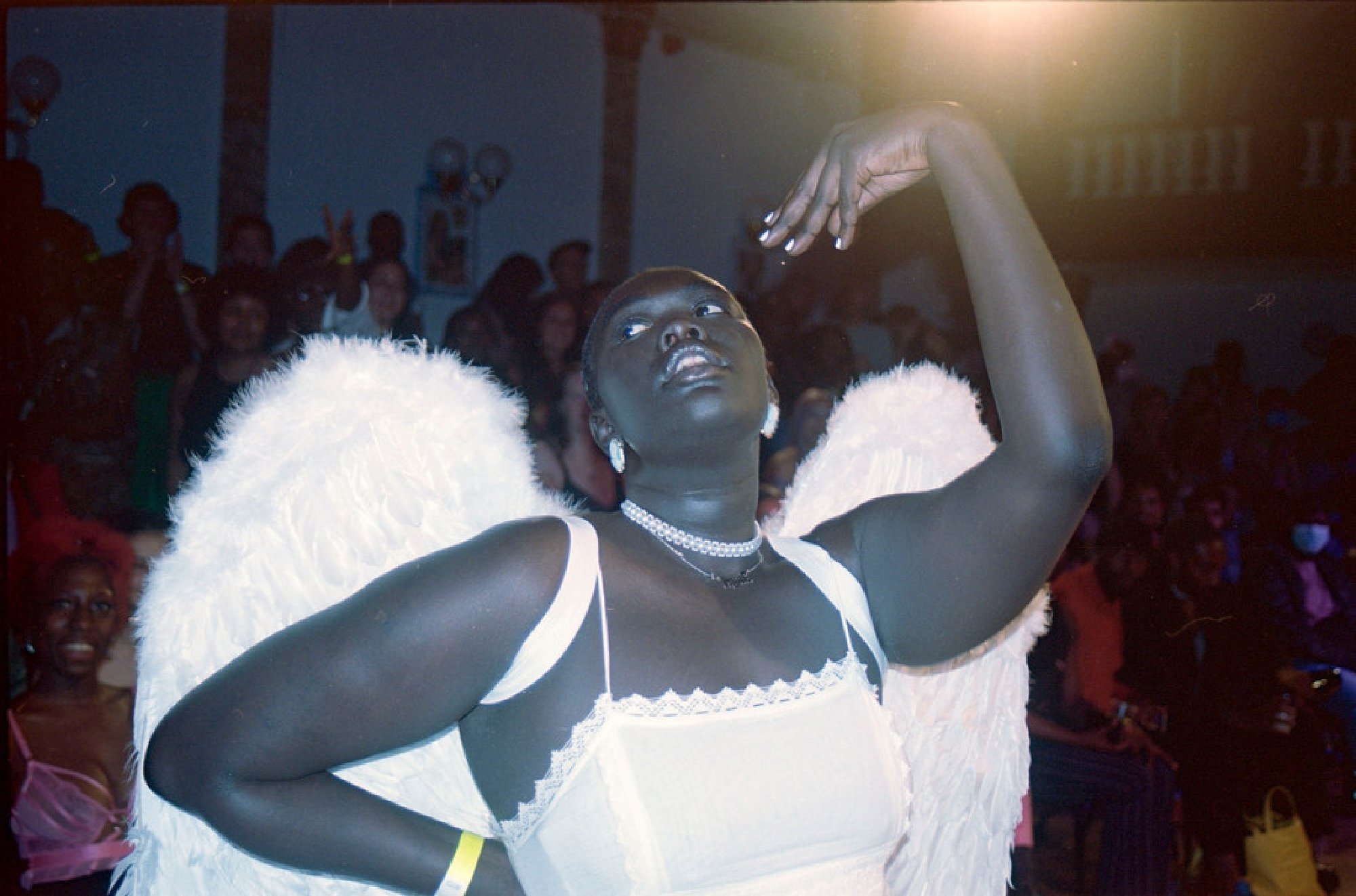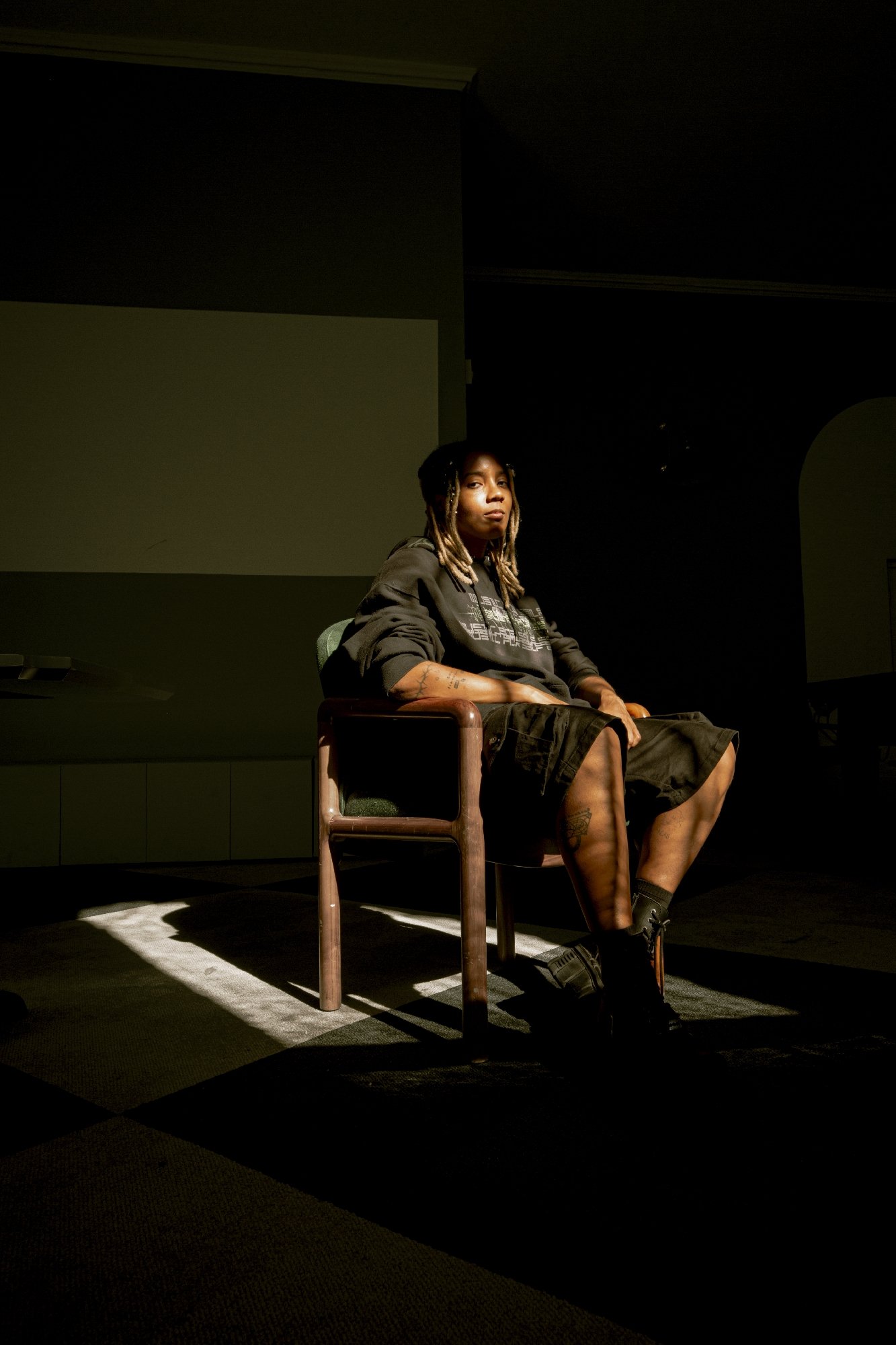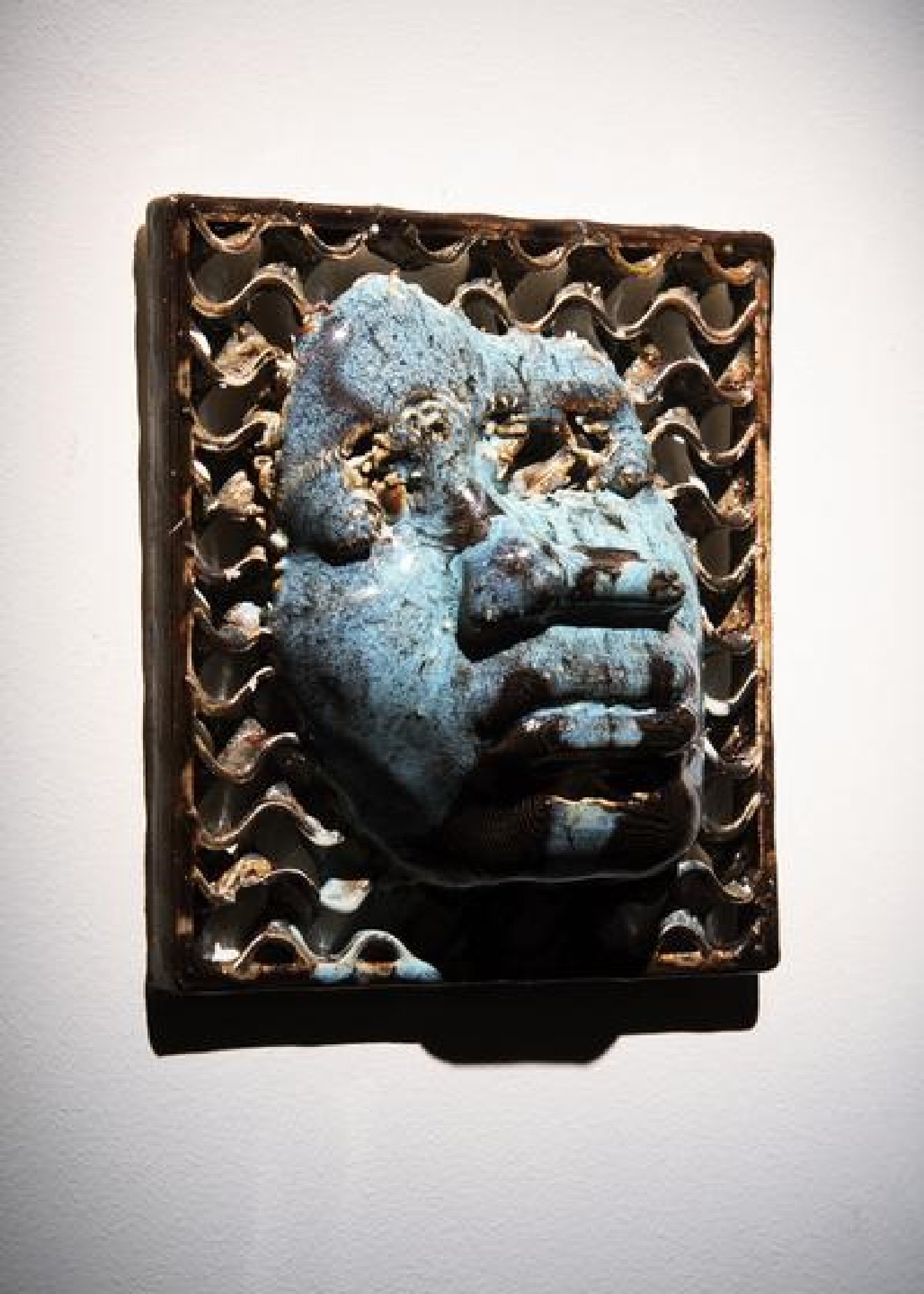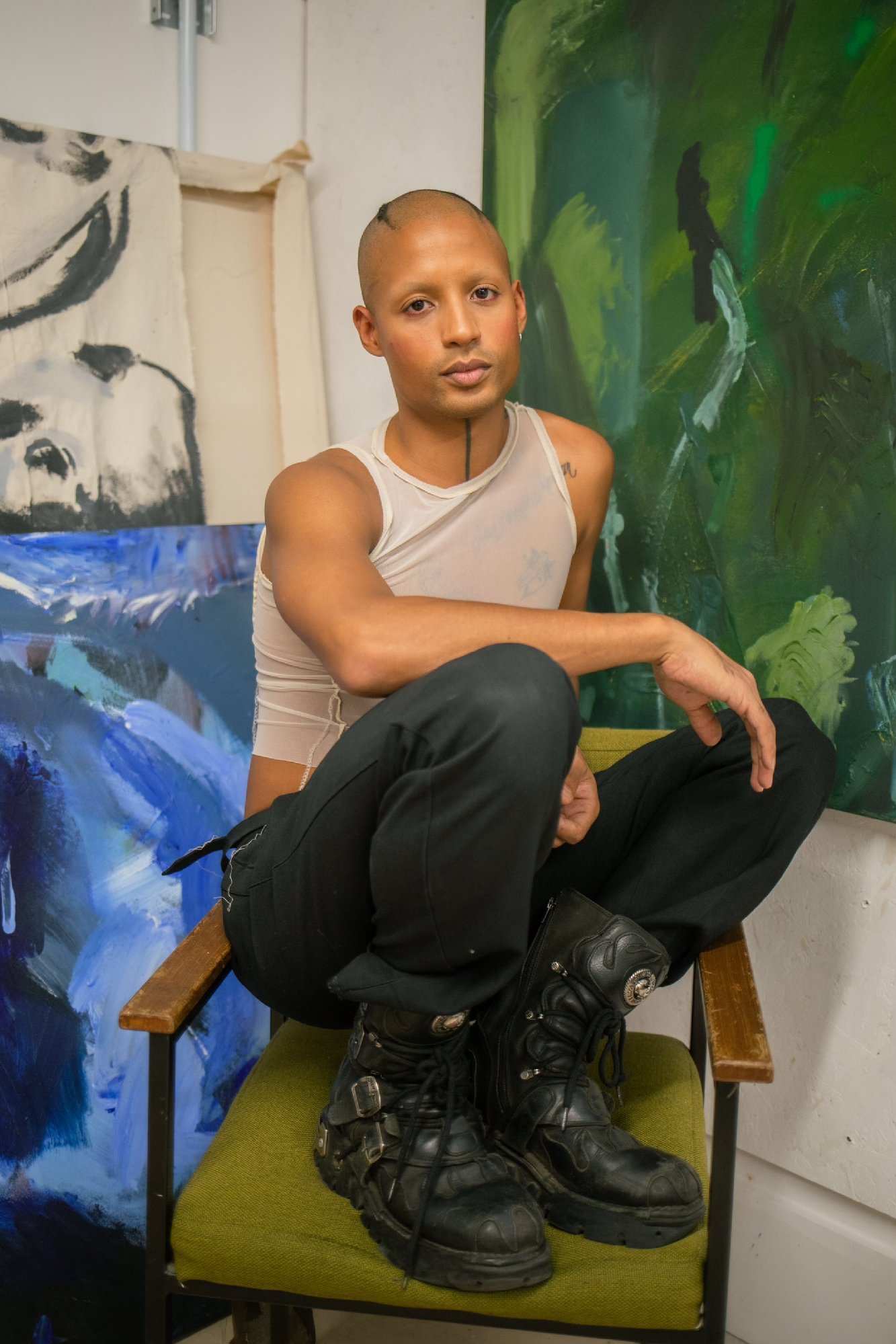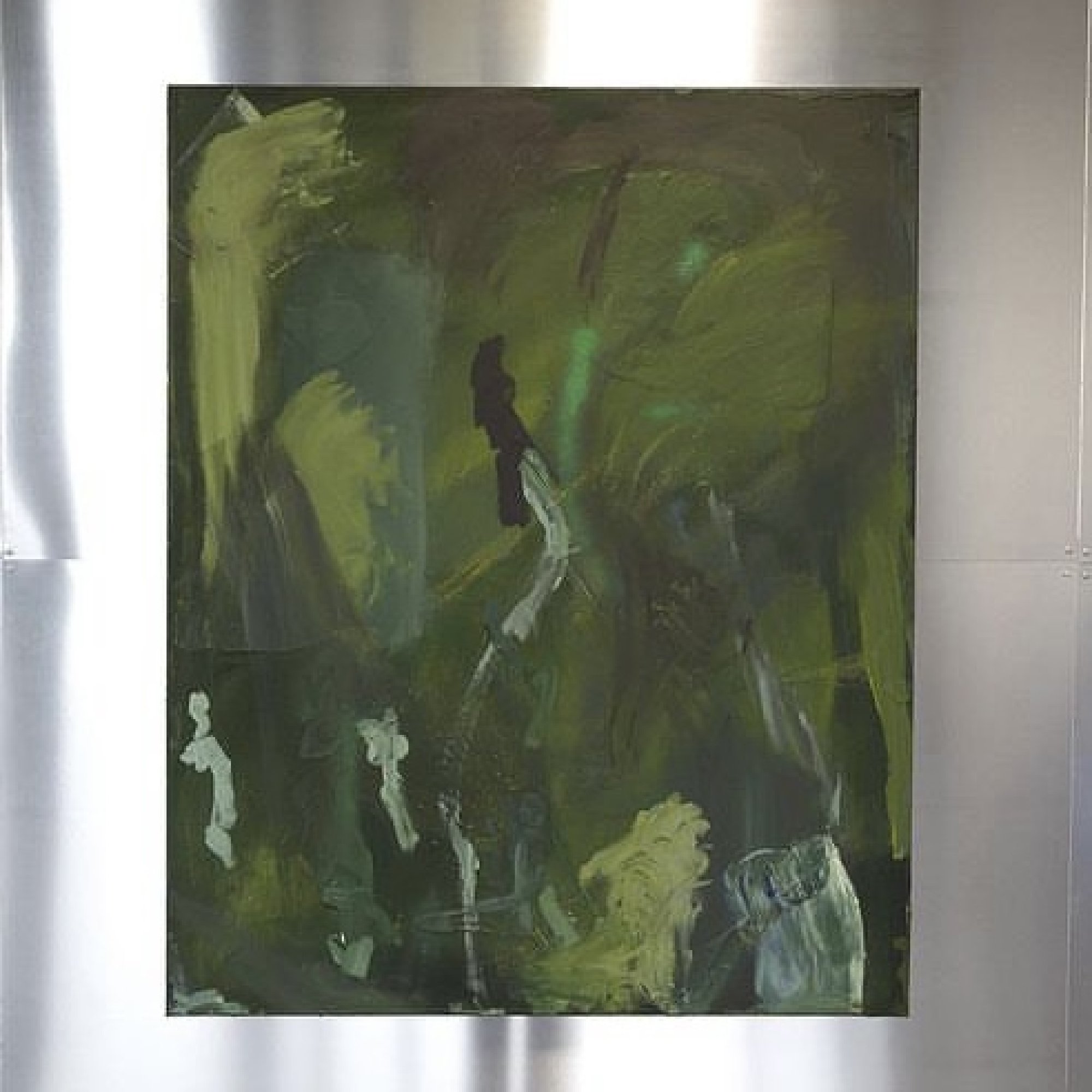Pacheanne Anderson, curator of Children of the Diaspora at 1-54 London, on supporting Black, queer, trans and othered artists
Amidst the hyper visibility of Blackness, of queerness and of transness in all cultural, social and creative sectors, and yet while the British government and other authorities worldwide become increasingly conservative, it’s no wonder that public-funded galleries and institutions often fall short when working with artists and curators who serve these communities.
Within this context, after graduating from the MSc at Christie’s Education and leaving my job with Christie’s, I decided to spenD this year facilitating as many residencies and exhibitions around London and Brighton as possible. With some experience in art writing and consultancy and having co-curated an exhibition in January with Bolanle Tajudeen, I jumped back into the wider market to test some of the business models I’d been thinking about.
As Pacheanne Anderson Gallery & Advisory, I collaborated with Soho House Studios throughout March and April to provide a beautiful whirlwind of paid opportunities for around 10 artists. This summer I was also invited to consult on a project with London’s Whitechapel Gallery looking at queer representation in the gallery’s collection. Through this process, I learnt just how little information or access to Black and queer artists these spaces actually have, and how important it is to fill gaps in the public’s understanding of a variety of Black narratives.
It’s an interesting moment, post pandemic and Black Lives Matter, where we are now seeing Black British art professionals finally being acknowledged on a slow run towards a more diverse, inclusive and equitable art scene. Curators such as Languid Hands at Frieze 2021 and Peju Oshin at Gagosian, Ronan McKenzie’s creative space HOME, galleries such as Tiwani Contemporary and graduates such as Miranda Forrester and Emma Prempeh are all examples of those doing good work. But will it be sustained in the long term or will the art market simply follow political and social trends, as we saw happen in the 1980s? As such, the nuances of intersectional practice have become prominent in the way my advisory shares opportunities with artists. When working with institutions, I have learned to be diligent in making sure that artists are paid on time, that they aren't misgendered or feel tokenised. And as the fight of representation and representational politics continues, there are so many interesting social ideas to explore.
This has led to an opportunity offered to me by 1-54 founder, Touria El Glaoui, to curate a special project at 1-54 London 2022. The exhibition, entitled Children of the Diaspora, is an integral presentation of artists living and practicing in the UK from the global African and Caribbean diaspora, the diversity and nuances of which are often overlooked or swept together by the art market. The artists selected, including Chiizi, Darryl Daley, Joshua Woolford, Bernice Mulenga, Enorê and Rachel O-Williams, present an expansive and authentic look at what it means to be a part of the wider diaspora as first, second and third generation artists either born, working and/or living in Britain.
Through an intentional platforming of ‘othered’ Black voices, the exhibition is my reaction to the current exploitation and promotion of queer, Black and trans artists in institutions and galleries. Through a mix of mediums, including abstract painting, photography, ceramics, collage and moving image, the curation explores the truly interwoven and complex narratives that come with being an immigrant in this country. The ways in which the works play with ideas of layering, portraiture or identity are very different, but hold the same energy and essence. There is a clear visual stimulus that allows for using both archival and modern materials that together restages and reimagines the unheard stories of the diaspora. On their approach, Joshua Woolford says: “I haven’t had access to my roots except through my family. I’m coming to terms with a place that feels imaginary from their accounts of it. So, my work is about addressing what it means to be in a place you're from but not really in.”
“The curation explores the truly interwoven and complex narratives that come with being an immigrant in this country”
This show is the first time that many of the artists have taken part in an art fair or been included in the contemporary Black art space. “I've been visiting 1-54 for the past five years and every time I have felt in awe of how people have contributed in a very raw way, you see the development of what Black artists are here for and create,” says Chiizii. So now, as Blackness is on trend again, as the queer and trans community are being held high up in conversations of diversity, and Black queerness is becoming the next new trendy product to be profited from, played with and potentially disposed of, I wonder when the commercial market will burst it’s social bubble?
Children of the Diaspora is Pacheanne Anderson Gallery & Advisory’s official entry point to the commercial art market, and as such, we are using this wonderful opportunity to launch the Collectors Club, our new accessible online sales space. As a low-income curator with finite resources, I have been able to create a radical approach to what contemporary curation might look like by putting on an exhibition a month and working with around 30 artists so far this year. So, we are ready to launch this next phase of the business.
In London, there are many Black high earners and people who are keen to embark on the journey of art collecting, but due to the tight social reigns in the art world, without people like myself, it can be daunting. Price points and the transparent, equitable way we work as a gallery means that genuine relationships and trust is at the forefront. We will be looking to not just sell art but share knowledge, skills and networks. The Collectors Club is about having fun and making money. Keeping prices below £10,000 is important as I believe that selling the work of emerging and semi-established artists to new collectors will ease them in and help grow other Black diaspora networks. The Collectors Club will share the same ethos we have when working with our artists, whereby relationship building, collaboration and community engagement is at the centre. This phase of the business will continue inheriting the long and slow game as we operate with care.
With the wider social context and focus continually shifting, I am now pushing for the conversation around the diaspora to expand in the most exploratory way I can. As a global marketplace, art is a profitable investment that consistently outperforms other asset classes. We would like to encourage and empower the Black and POC community to begin thinking on the idea of art collecting or diversifying their existing investment portfolios. Now that the gallery and artist advisory is on a good trajectory, it is time to make the commercial crossover and build and develop a new network of collectors and art enthusiasts to engage with work made by people they can relate to and invest in.
Children of the Diaspora is on view at 1-54 London, Somerset House until 16 October 2022
Words Pacheanne Anderson
Camera Tamara Lois Ansah
Editing Holly Jackson
Visit Pacheanne Anderson Gallery & Advisory
Visit Pacheanne Anderson
Visit the Collectors Club
Visit 1-54
Published on 15/10/2022


